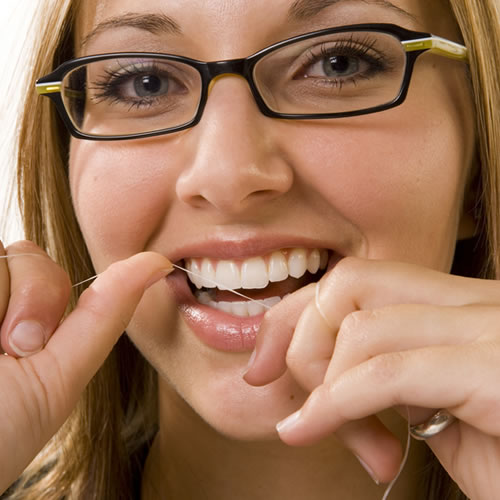What Happens When Food Becomes Trapped In Your Teeth?

Decay Prevention – The Basics
Working on the assumption that all of our Bedford patients brush their teeth twice a day, both morning and night, this should be sufficient to ensure that they have a healthy set of teeth, right? Well, not quite. Brushing your teeth is only a part of the story, albeit a great place to start.
It is true that brushing is essential, and you should take care to renew the brush or head of an electric one at approximately three monthly intervals to ensure that the bristles are still effective. Although brushing is very important, it is still likely that small pieces of food will have become trapped between the teeth and in and around the gums.
Before we look at how to remove these, let us first of all, take a look at what happens when this occurs.
Food breakdown
Whilst we might notice a larger piece of food that becomes trapped and make an attempt to remove it, even the tiniest piece of trapped food can pose a risk for a healthy tooth. It isn’t actually the food that is the problem, but what happens to it next. Our mouths are full of bacteria, some good and some not so good, and this bacteria loves trapped food as a source of energy. As the bacteria consumes the residual food debris, acids are formed as bi-products and it is this that causes the damage to the enamel of our teeth. The tooth enamel is there to provide protection for the softer inner sections of our teeth and it is easy to see why we should avoid it being compromised.
These bacteria also create plaque, a clear sticky film that covers our teeth. Where not removed, this will eventually turn into tartar, a harder form which is impossible to remove through simple home care. If left too long, problems such as gingivitis and periodontitis can occur; exacerbated by the tartar build-up. Although this process can take time and doesn’t happen overnight, the potential long term implications include loose teeth that may even fall out, caused by periodontitis where it degrades the bone that supports the teeth.
Removing trapped food debris
Diligent brushing of your teeth is essential and fundamental for a healthy mouth; but this alone isn’t enough. There are a number of things that you can do to aid removal of the tiny fragments of food which can remain even after you have brushed well.
Straight and evenly spaced teeth
It is far easier for food to become trapped in teeth that are crooked and uneven; similarly food which is trapped is harder to remove. If you suffer with this to a significant degree, orthodontic (braces) treatment is available to correct the problem. Not only will you have a healthier mouth, but a nicer smile too!
Hydration
A well-hydrated mouth helps the flow of saliva that will wash away some of the food and bacteria that naturally collects between the teeth. A quick ‘swill and spit’ using water will also help to remove the larger parts following a meal and is a simple way of reducing the problem where you aren’t able to clean your teeth until some time afterwards.
Dental floss
This is perhaps the biggest issue as only around one in five of us use dental floss, even though it has been proven to be the best way to remove trapped food and excess ‘bad’ bacteria. Some patients do find it a little difficult to do at first, but once you have mastered it, it will become a regular and important part of your daily oral health care routine. There are various versions available including floss bows and inter-dental brushes. These perform the same task overall and whilst you may prefer one of them, persevering with basic floss is probably the cheaper option.
There are also water piks available which aim to blast fine jets of water between the teeth, removing the food and bacteria. There are concerns though, that these are not as effective as simple floss and can prove to be quite messy too.
Professional cleaning and care
Although good care at home, including the daily use of dental floss, should go a long way to helping maintain healthy teeth and gums, we also strongly recommend that you see a dental hygienist on a six monthly basis. Some people see us more frequently, for example those with conditions such as diabetes, which can leave you more prone to gum disease.
There are many benefits in seeing the hygienist, including learning about good oral care practice. During a friendly discussion, they will discover your eating and drinking habits, whether you smoke or not, and what your current cleaning regime is. From this they will make suggestions as to ways that you can improve. Remember, no one is making a judgement about your lifestyle, but simply offering professional advice about how to have healthier teeth and gums.
The hygienist will also provide a professional clean for your teeth and gums, often known as a ‘scale and polish’. This removes the built up tartar from your teeth and gum line, helping to keep you free from gum disease.
For further advice or to arrange an appointment to see the hygienist, please call The Dental Centre Bedford today on 01234 819868.
